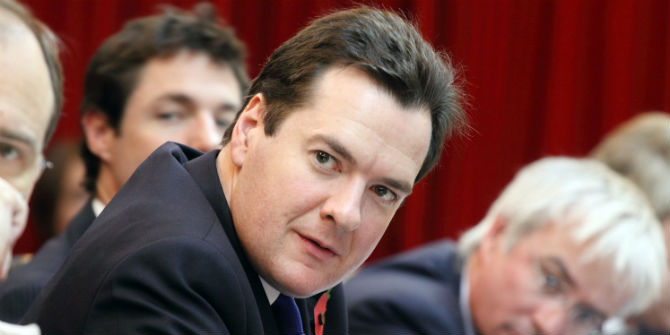While a comprehensive agreement with the EU has been reached, the process since its adoption shows that negotiations are far from over. With milestones approaching, the road ahead is littered with potential pitfalls and likely sticking points, for which there are few easy solutions, explains Joël Reland.
The UK-EU Trade and Cooperation Agreement (TCA) came into force in January 2021, but has spent most of the time since in the deep freezer.
A few elements have kicked fully into gear. For example, there are now controls on British exports to the EU, which has hindered trade. Free movement of people from the EU has also ended, replaced by a UK points-based immigration system which – to the surprise of many – has led to unprecedentedly high levels of net migration, in particular from non-EU countries.
Yet there are many more areas covered by the TCA where little has been done since it came into force, because of the wider standoff over the Northern Ireland Protocol. Now that this issue has been settled, to a degree, by the Windsor Framework, there is an opportunity for the UK and EU, for the first time since 2016, to start thinking constructively about how they can work better together.
There are a number of ticking time bombs contained in the TCA, which the UK and EU need to work together to address.
So, what might this look like? To a great extent, policy options are still constrained by politics. The Conservative and Labour parties are both unwilling to change the fundamentals of the Brexit deal – towards more formal integration with the EU – out of fear of what this would do to their electoral chances. Similarly, the current European Commission is winding down its operations before next spring’s European Parliament elections. Any structural reform of the relationship is thus a few years off, at least.
Regardless, there are a number of ticking time bombs contained in the TCA, which the UK and EU need to work together to address, in order to ensure the relationship does not begin sliding backwards again. As our January report on the future UK-EU relations made clear, this is a relationship which needs to walk before it can run – a term notably echoed by the new EU ambassador to the UK last week. Managing these issues and stabilising relations is a necessary precursor to more ambitious cooperation in future.
Hurdles ahead
One of the most immediate deadlines was the subject of recent media headlines. Under the TCA’s “rules of origin”, from the start of 2024, a greater proportion of an electric vehicle needs to be made in the UK or EU to qualify for tariff-free trade. Manufacturers on both sides are concerned that they will not be able to meet the new, higher requirements, and are thus facing the prospect of 10 per cent tariffs.
Given the vital importance of electric vehicles to both the UK and EU green transitions, there is a clear mutual interest in both parties agreeing to extend the existing trading terms, to stave off the threat of tariffs. Whether they can achieve this will be an early test of whether the Windsor Framework has ushered in an era of more constructive relations.
Another upcoming issue is the EU “adequacy” decision which allows the free exchange of personal data between the UK and EU. This is worth hundreds of millions of pounds a year (in reduced administrative costs) to UK services firms but, unusually, the EU decision has an expiry date of June 2025. The reason for this is the EU’s fear that the UK is planning to diverge from its GDPR regulation on data privacy, as adequacy relies on the partner country having near-equivalent data protection standards to the EU.
GDPR was one of the early EU regulations which the Johnson government singled out for reform, hence the 2025 deadline, but that agenda has seemingly gone cold of late. Given the significant value which the adequacy decision holds for British firms, the UK should probably start thinking about how to ensure the decision is extended (ideally indefinitely). As the power to renew it lies with the EU alone, it will require direct engagement to convince the EU that there is a firm commitment to regulatory alignment with GDPR.
One other crunch point is June 2026, when the TCA agreements governing cooperation on energy and fisheries expire. These dates were deliberately linked by the EU, as a not-so-subtle signal that UK attempts to reduce EU fishers’ access to its waters could result in curtailed energy supplies. Yet Russia’s war in Ukraine has recalibrated matters – energy security is now a vital shared interest, meaning cooperation on supply sharing should not be bargained away over a few fish.
Indeed, talks are underway on the building of new energy interconnectors between the UK and European mainland, and on the common development of major offshore wind infrastructure in the North Sea. These projects will require new shared regulatory oversight, based either on updating the terms of the TCA, or building a wider framework derived from it. Yet, to make that regulation as effective as possible, it would be wise to delink talks from the fisheries question (which could still prove more combustible). Whether or not this happens will be another test of the maturity of the diplomatic relationship.
Energy security is now a vital shared interest, meaning cooperation on supply sharing should not be bargained away over a few fish.
Finding solid common ground
To be clear, achieving all of the above would do little to fundamentally change UK-EU relations (with the partial exception of the energy talks). However, it would avoid an active worsening of both trade and political links, and put the relationship on a more stable footing long-term.
If the UK and EU were able to achieve this, it could also create a platform for talks on more ambitious cooperation in areas of mutual interest. The obvious moment for this is 2025, when the TCA will be renegotiated. Little is prescribed about how this should play out – it is up to the UK and EU to set the terms.
And, if they have ambitions to widen or deepen areas of cooperation, the work starts now to make talks as constructive as possible. That means putting out the potential fires outlined above, identifying the key topics for renegotiation (the linking of emissions trading schemes seems an obvious area of potential mutual interest), and starting preliminary discussions.
The signing of the TCA was seen as a sign that Brexit was finally “done”. Yet, in reality, the work of managing the UK’s relations with the EU never stops.
All articles posted on this blog give the views of the author(s), and not the position of LSE British Politics and Policy, nor of the London School of Economics and Political Science.
Image credit: Number 10, Attribution-NonCommercial-NoDerivs 2.0 Generic (CC BY-NC-ND 2.0)






